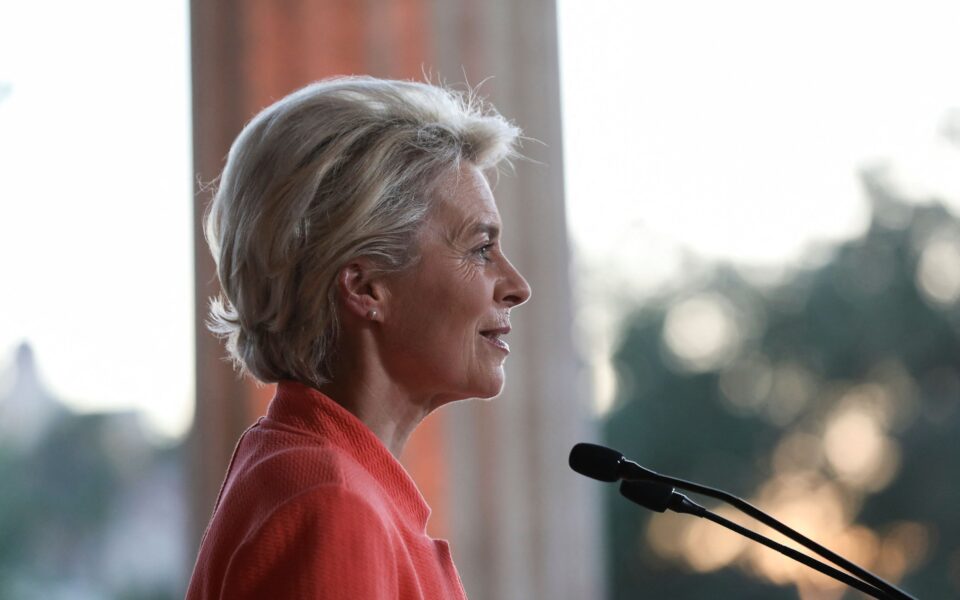Democracy and Europe

In an inspired speech at the Athens Democracy Forum Thursday, the president of the European Commission outlined the course of democracy from ancient Athens to today, noting its successes, its imperfections, its retreats, and its current challenges. She concluded with the need for Europe to secure the future of coming generations.
“This is the essence of the long journey of democracy. It is about restoring confidence in our future,” Ursula von der Leyen said, speaking at the Stoa of Attalos.
Referring to threats such as autocracy, inequality and the climate crisis, von der Leyen noted: “All democracies are constant work in progress, including inside our Union. The European Union was built on the promise of ‘unity in diversity.’ But this promise has yet to be achieved in full. The path towards full equality for all citizens is still long.” She spoke of racism and anti-Semitism, of the violation of minorities’ rights in parts of the Union, of the threats against the rule of law and against judicial independence, of corruption.
“As guardians of the Treaty, it is our obligation to act,” she said. “There might be disagreements, at times even severe disagreements, but the overwhelming majority of us believe that Europe is our destiny.”
But perhaps this common understanding is no longer as strong as many of us would like. Because the greatest threat that the Union faces today is in its very foundations.
The Union was built on the common understanding that the whole was greater than its parts. However, in an increasing number of countries we see the rise of political forces which base their strength on the exclusion of parts of society, which cultivate division at home and in relations with other nations.
This is a direct threat to the bonds of trust which allow member-states to hand over part of their sovereignty to the Union. This will lead to opportunistic alliances, further weakening common goals, principles and practices.
In this climate, every action aimed at keeping countries in line “legitimizes” the greater autonomy of “dissidents” and undermines confidence, unity and institutions. How this problem will be solved will determine the future of democracy and of Europe.




